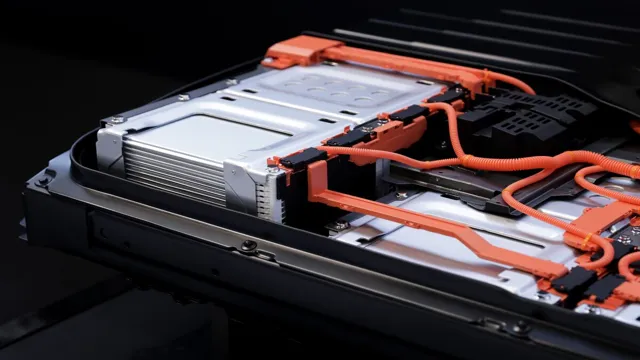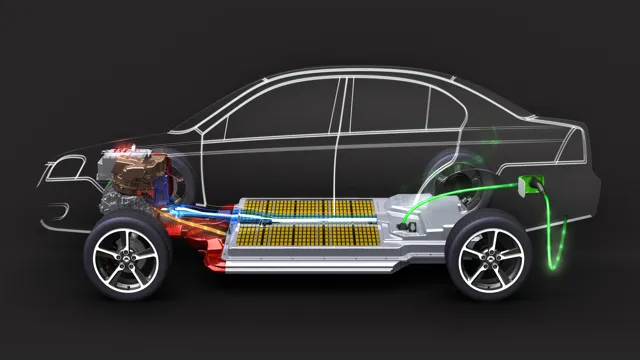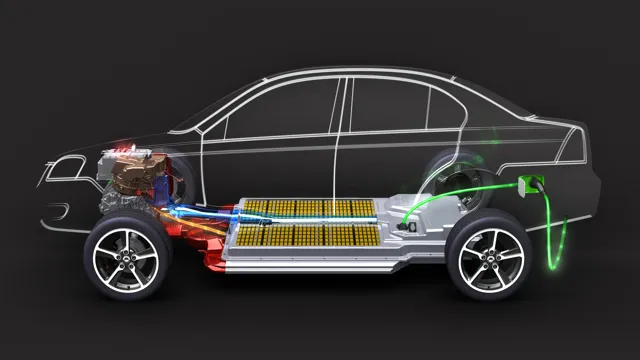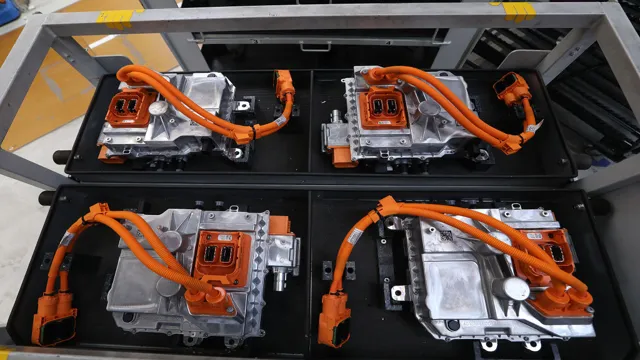Unlocking The Mystery of Electric Car Batteries: How Long Will They Really Last?
Do you know how long an electric car battery lasts? The lifespan of an electric car battery is one of the most essential aspects that potential buyers consider before investing in an electric vehicle. The durability of the battery can affect the depreciation value and resale price of a vehicle. It can be challenging to determine how long an electric car battery will last, as there are many factors to consider.
In this blog, we will explore the key factors that affect the lifespan of an electric car battery and how long one can expect an electric car battery to last. So, let’s dive in and learn more about the electric car battery lifespan!
Factors Affecting Battery Life
If you’re considering buying an electric car, you may be wondering how long the battery will last. The answer depends on several factors. First, the type of battery used in the car will affect its lifespan.
Lithium-ion batteries are commonly used in electric cars, and they typically have a lifespan of 10-15 years. However, this can be affected by variables such as temperature, charging habits, and usage. Driving habits can also impact battery life.
Frequent rapid acceleration, heavy braking, and driving at high speeds can all wear down the battery more quickly. Similarly, extreme temperatures, both hot and cold, can also impact the battery’s performance. Finally, the way the battery is charged can also affect its lifespan.
Frequent overcharging or undercharging can cause it to degrade faster. That said, with proper care and maintenance, electric car batteries can last for many years and provide reliable performance.
Driving Habits
One of the most significant factors affecting the life of a car battery is our driving habits. While most of us are aware that frequent short trips and leaving the lights or radio on can drain the battery fast, there are other driving habits that also have an impact. For instance, rapidly accelerating or driving at high speeds for extended periods can put a strain on the battery and reduce its lifespan.
Similarly, using excessive electronics in the car, such as charging multiple devices simultaneously, can also deplete the battery faster. Moreover, harsh weather conditions, especially extreme heat or cold, can also take a toll on the battery and cause it to fail prematurely. Therefore, to extend the life of your car battery, it is essential to practice safe driving habits, avoid unnecessary electronics use, maintain your vehicle properly, and drive according to the weather conditions.
This way, you can enjoy a more reliable and long-lasting car battery and avoid any unexpected breakdowns on the road.

Weather Conditions
When it comes to battery life, weather conditions can play a major role in how long your battery lasts. Extreme temperatures, whether hot or cold, can seriously affect your battery’s performance. In hot weather, your battery can become overworked due to increased evaporation, which can cause your battery fluid to evaporate too quickly and damage your battery’s internal components.
On the other hand, cold weather can cause your battery to go into hibernation mode, making it difficult for your battery to produce the necessary energy to start your vehicle. It’s important to keep an eye on the weather forecasts and be aware of any extreme temperatures that may affect your battery life. Regular maintenance checks by a professional can also help prevent any potential issues and ensure your battery is performing at its best.
By taking a few proactive measures, you can help ensure your battery maintains optimal performance, regardless of the weather conditions.
Battery Type and Size
When it comes to battery life, a crucial factor to consider is the type and size of the battery. Different types of batteries, such as lithium-ion, nickel-metal hydride, and lead-acid, have varying levels of energy density, which affects their lifespan. The size of the battery also plays a significant role in determining how long it can power a device, with larger batteries typically providing longer runtime.
However, it’s important to note that larger batteries might not always be the most practical option since they can add weight or bulk to the device. It’s vital to choose a battery type and size that best suits your needs, taking into account factors such as intended use, device compatibility, and cost. Ultimately, maintaining the battery properly, such as avoiding extreme temperatures or overcharging, can further extend its lifespan and maximize its potential.
Average Lifespan of Electric Car Batteries
If you’re wondering about the lifespan of electric car batteries, the good news is that they tend to last a long time. Most battery packs are designed to last at least 100,000 miles, which is roughly 8 to 10 years of use for the average driver. However, this can vary depending on a variety of factors, including the type of battery, the driving habits of the owner, the climate in which the car is driven, and more.
In general, lithium-ion batteries are considered to be the most durable and long-lasting option, while nickel-metal hydride batteries tend to degrade more quickly over time. It’s also worth noting that even after the battery reaches the end of its life in an electric car, it can often be recycled or repurposed for other uses, making them a more sustainable choice overall. So if you’re considering making the switch to an electric vehicle, you can do so with confidence knowing that the battery is designed to last for many years of reliable use.
Industry Standards and Expectations
When it comes to electric car batteries, many people wonder how long they can expect their battery to last. On average, most electric car batteries have a lifespan of around 8 to 10 years, or roughly 100,000 miles. However, this can vary depending on a few different factors.
For example, factors such as temperature, driving habits, and charging habits can all impact the lifespan of the battery. High temperatures can cause the battery’s performance to degrade more quickly, while frequent fast charging can also cause the battery to wear out faster. On the other hand, gentle driving and slower charging can help extend the life of the battery.
It’s also worth noting that as technology advances, newer electric car batteries may have longer lifespans and improved performance compared to older models. Overall, if you take good care of your electric car battery and consider the various factors that can impact its lifespan, you can expect it to last for many years to come.
Real-World Usage and Customer Experiences
Electric Car Batteries If you’ve been considering buying an electric car, you may be wondering how long the batteries last. According to recent data, the average lifespan of electric car batteries can vary depending on the make and model of the car, as well as driving habits. Generally speaking, most electric car batteries have a lifespan of around 100,000 miles.
However, some batteries have been known to last much longer, up to 300,000 miles in some cases. It’s important to note that the lifespan of electric car batteries can be affected by factors such as extreme temperatures and charging habits. To get the most out of your electric car battery, it’s recommended that you avoid exposing it to extreme temperatures, and avoid charging your battery to 100% or letting it drain completely.
Regular maintenance is also important, and it’s recommended that you have your battery checked by a professional every few years to ensure its performance is optimal. Overall, electric car batteries are reliable and long-lasting, and with proper care and maintenance, you can expect to get many years of use out of them.
Maximizing Battery Life
If you’re wondering about how long does an electric car battery lasts, the answer depends on several factors. Maximizing your EV’s battery life requires a few smart habits, such as avoiding excessive heat and limiting your range to no more than 80% of the total capacity. Many EV manufacturers also recommend charging your battery regularly and keeping it at around 50% charge when not in use.
Additionally, you can improve your battery life by utilizing regenerative braking, which allows your car to recover energy during deceleration. Moreover, being cautious when accelerating and avoiding rapid changes in speed can help preserve your battery life. It’s also worth noting that charging your EV to full capacity daily can reduce the lifespan of your battery, so it’s essential to choose the right charging level.
By adopting these strategies and taking great care of your EV, you can extend the life of your electric car battery and keep your vehicle running for a longer time.
Charging and Discharging Practices
When it comes to maximizing battery life, it’s important to follow recommended charging and discharging practices. One of the most important things to keep in mind is to avoid overcharging your battery. This can lead to premature wear and tear, reducing its overall lifespan.
Similarly, discharging your battery too much can also have negative consequences, leading to decreased capacity over time. To prevent this, it’s recommended to keep your battery between 20% and 80% charge whenever possible. It’s also important to avoid exposing your battery to extreme temperatures, which can further accelerate wear and tear.
By taking care to follow these simple practices, you can help extend the life of your battery and keep your devices running smoothly for as long as possible.
Battery Maintenance Tips
Battery maintenance is critical in ensuring that your electronic devices run efficiently for a long time. One effective way to maximize battery life is to avoid overcharging. Most electronic devices these days come with built-in protection against overcharging, but it is always better to be cautious.
It is advisable to remove the charger from the device once it reaches a full charge. Another important tip is to keep your battery cool. High temperatures can cause damage to batteries and reduce their lifespan.
Don’t leave your devices out in the sun or in a hot car. Additionally, it is important to regularly clean battery contacts and replace old batteries. By taking these simple steps, you can extend the life of your batteries and get the most out of your electronic devices, saving yourself both time and money in the long run.
Remember, taking care of your batteries not only benefits you but also the environment as it reduces the number of batteries that need to be disposed of.
Conclusion: Is an Electric Car Right for You?
In conclusion, the lifespan of an electric car battery ultimately depends on a variety of factors, including usage, maintenance, and specific model. However, one thing is clear – with advancements in technology and a growing focus on sustainability, the electric vehicle industry is charging forward with an exciting future ahead. So, you may not know how long your electric car battery will last, but you can be sure that the journey is just beginning!”
FAQs
What is the lifespan of an electric car battery?
The lifespan of an electric car battery can vary depending on the manufacturer and usage. However, most electric car batteries last between 8-10 years or 100,000-200,000 miles.
How can I extend the life of my electric car battery?
To extend the life of your electric car battery, it is important to keep the battery charged between 20-80% and avoid letting it completely discharge. It is also recommended to avoid exposure to extreme temperatures and park in a shaded area.
How often do I need to replace the battery in my electric car?
The battery in an electric car typically needs to be replaced after 8-10 years or 100,000-200,000 miles. However, some manufacturers offer warranties on the battery that can extend the lifespan.
Can I recycle the battery in my electric car?
Yes, the batteries in electric cars are recyclable. Many car manufacturers have implemented battery recycling programs to ensure proper disposal and reuse of materials.






